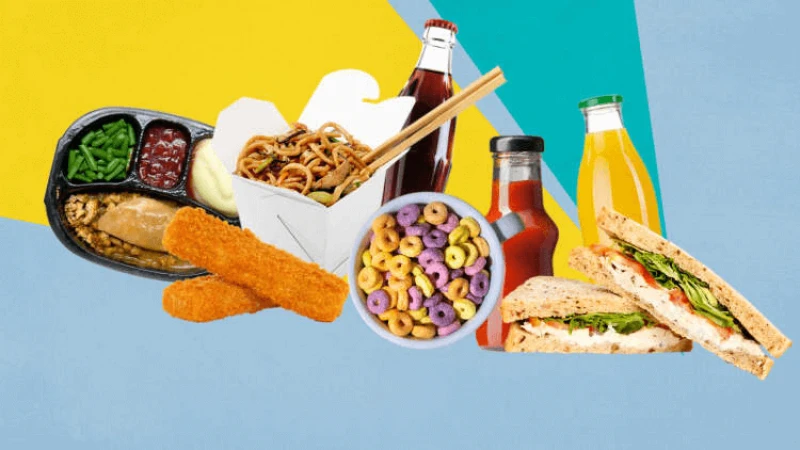Study: What does ‘ultra-processed’ food do to our brains and capacity to learn?
Study: What does ‘ultra-processed’ food do to our brains and capacity to learn?


Ultra-processed foods may not only affect our bodies, but our brains too.
New research suggests links between ultra-processed foods—such as chips, many cereals and most packaged snacks at the grocery store—and changes in the way we learn, remember and feel. These foods can act like addictive substances, researchers say, and some scientists are proposing a new mental-health condition called “ultra-processed food use disorder.” Diets filled with such foods may raise the risk of mental health and sleep problems.
In a recent study published in the journal Cell Metabolism, researchers primed participants with two different kinds of snacks and saw how their brains later responded to a cue for a high-fat, high-sugar food, which many ultra-processed foods are.
Scans of their brains showed that the participants who ate a high-fat, high-sugar snack for eight weeks had much higher activity in parts of the brain that create dopamine, a neurotransmitter involved in motivation, learning and expecting and experiencing rewards, when they saw a cue telling them to expect another high-sugar, high-fat food.
…
In a different study, four days of having a breakfast high in saturated fat and added sugar was linked to reductions in performance on some learning and memory tests, according to researchers in Australia. People who had a healthier breakfast didn’t have the performance changes.
This is an excerpt. Read the original post here

 | Videos | More... |

Video: Nuclear energy will destroy us? Global warming is an existential threat? Chemicals are massacring bees? Donate to the Green Industrial Complex!
 | Bees & Pollinators | More... |

GLP podcast: Science journalism is a mess. Here’s how to fix it

Mosquito massacre: Can we safely tackle malaria with a CRISPR gene drive?

Are we facing an ‘Insect Apocalypse’ caused by ‘intensive, industrial’ farming and agricultural chemicals? The media say yes; Science says ‘no’
 | Infographics | More... |

Infographic: Global regulatory and health research agencies on whether glyphosate causes cancer
 | GMO FAQs | More... |

Why is there controversy over GMO foods but not GMO drugs?

How are GMOs labeled around the world?

How does genetic engineering differ from conventional breeding?
 | GLP Profiles | More... |

Alex Jones: Right-wing conspiracy theorist stokes fear of GMOs, pesticides to sell ‘health supplements’




 Viewpoint — Fact checking MAHA mythmakers: How wellness influencers and RFK, Jr. undermine American science and health
Viewpoint — Fact checking MAHA mythmakers: How wellness influencers and RFK, Jr. undermine American science and health Viewpoint: Video — Big Solar is gobbling up productive agricultural land and hurting farmers yet providing little energy or sustainabilty gains
Viewpoint: Video — Big Solar is gobbling up productive agricultural land and hurting farmers yet providing little energy or sustainabilty gains Fighting deforestation with CO2: Biotechnology breakthrough creates sustainable palm oil alternative for cosmetics
Fighting deforestation with CO2: Biotechnology breakthrough creates sustainable palm oil alternative for cosmetics Trust issues: What happens when therapists use ChatGPT?
Trust issues: What happens when therapists use ChatGPT? 30-year-old tomato line shows genetic resistance to devastating virus
30-year-old tomato line shows genetic resistance to devastating virus California, Washington, Oregon forge immunization alliance to safeguard vaccine access against federal undermining
California, Washington, Oregon forge immunization alliance to safeguard vaccine access against federal undermining The free-range chicken dilemma: Better for birds, but with substantial costs
The free-range chicken dilemma: Better for birds, but with substantial costs ‘You have to treat the brain first’: Rethinking chronic pain with Sanjay Gupta
‘You have to treat the brain first’: Rethinking chronic pain with Sanjay Gupta
